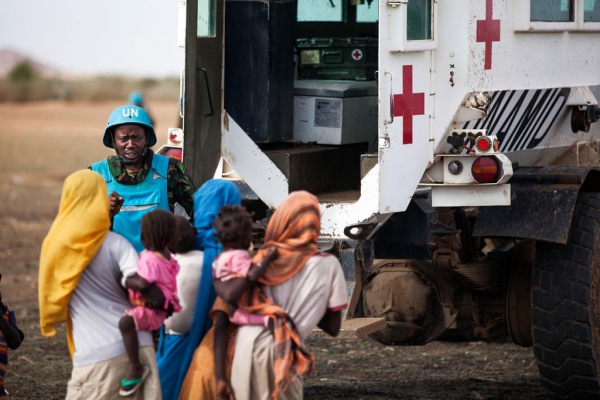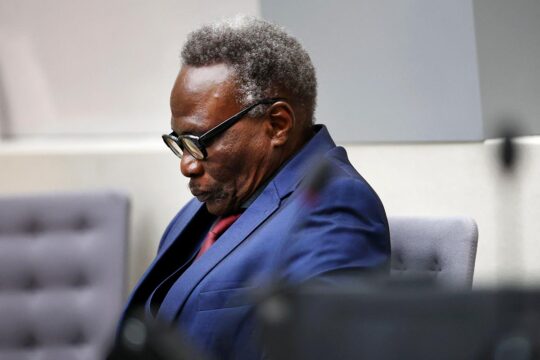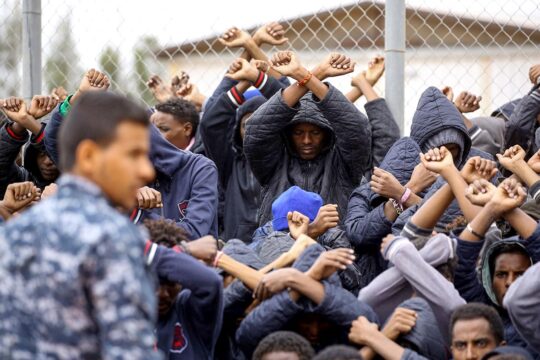At a June 14 Security Council meeting, UN Under Secretary-General for Peacekeeping Operations Hervé Ladsous admitted lack of progress in finding a viable political solution to the conflict in Darfur, western Sudan. Five days earlier, International Criminal Court (ICC) Prosecutor Fatou Bensouda went further, blaming the situation on impunity for the violence that has wracked Darfur for several years. Bensouda blamed the UN Security Council for doing nothing to get the arrest of Sudanese President Omar Al Bashir, who continues to travel freely, especially in Africa, despite two ICC arrest warrants against him for crimes in Darfur.
There were heated exchanges between Bensouda and some diplomats on June 9 as the ICC Prosecutor briefed the Security Council on the situation in Darfur. Bensouda did not mince her words. She accused the Council of being “silent and non-responsive” on Darfur as violence there continues. She said the UN was thereby only encouraging Sudanese President Bashir to visit other countries, despite the two ICC arrest warrants against him for war crimes, crimes against humanity and genocide committed in Darfur. “Sadly, my Office’s countless appeals to you for action (…) have not been heeded,” she said.
And yet it was the UN Security Council which referred the situation in Darfur to the ICC in 2005. This gave rise to the Court’s first investigation in a country that is not a State Party to the Rome Statute (ICC founding treaty). Bashir became the first sitting head of State sought by the ICC, and was the first person the Court charged with genocide.
Bensouda said the Security Council’s failure to act on ICC findings of non-compliance was encouraging some countries to invite and host Bashir. She said it has “emboldened some States to publicly express pride in disregarding the Council's authority”, which should be a matter of great concern to all. “The Council cannot and must not remain silent and non-responsive,” she stressed, saying that this was just adding to the frustration of victims.
Sudan says Resolution unfounded
The Prosecutor’s address was clearly too bold for some, including Russian representative Evgeny Zagaynov, who expressed surprise at its tone. Bensouda was expected to deliver a detailed report, not her opinion on what the Council was doing, said the Russian, who got immediate support from some African diplomats. Egyptian representative Amr Abdellatif Aboulatta said his country supported the position of the African Union, which asked the Council to suspend ICC proceedings against Bashir and withdraw its referral. “The International Criminal Court should refrain from taking further measures and respect the sovereignty and territorial integrity of African States,” he said.
Encouraged by this expression of solidarity from Egypt, Sudan’s representative Omar Dahab Mohamed stressed that his country, which is not a party to the Statute of Rome, has no connection to the ICC and that Security Council Resolution 1593 referring the situation in Darfur to the Court was unfounded. He claimed African leaders were subject to discriminatory treatment “worse than during the colonial period”. He also asked why no ICC investigation had yet been opened in Afghanistan, Iraq or Palestine. Answering back, Bensouda accused the Sudanese diplomat of providing “misinformation” to cover up the situation in Darfur.
Red carpet
With the exception of Russia and China, the big powers in the Security Council expressed support to the ICC Prosecutor. French representative Alexis Lamek stressed that fighting impunity in Darfur was not only founded but absolutely necessary, given the continuing violence there. He said violations of human rights and international humanitarian law were continuing. Accountability must be restored, he said, adding that impunity was unacceptable. Lamek also said it was regrettable that arrest warrants issued by the ICC had not been implemented.
Lamek’s speech was certainly more ICC-friendly than those of his Russian and Sudanese countrparts. However, it is unlikely to change the facts on the ground. Numerous African governments continue to roll out a red carpet for Bashir, while civilians are still being massacred in Darfur.







